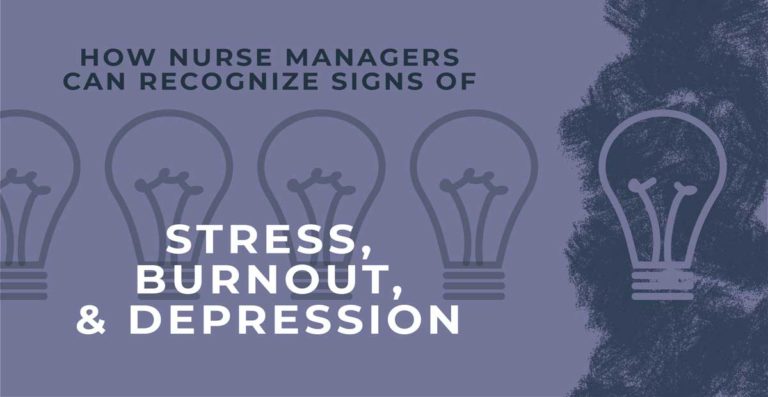As a nurse manager, you know how hard your staff works day in and day out. Regardless of what kind of healthcare facility you run, you and your staff members need to be competent and precise every step of the way or the consequences could be fatal. That’s why it’s so important to ensure that your nursing staff is up to the challenge. With so many long hours, some nurses can suffer from burnout, stress, and even depression. They might feel trapped in a job that takes them away from their kids or loved ones. As their manager, it’s your responsibility to watch out for these signs of stress and burnout to make sure that everyone is doing their job properly.
Withdrawing from Social Activity
Being a nurse is an inherently social job that requires a lot of communication. People don’t usually become a nurse as a way of avoiding social interaction. If you notice one of your nurses eating alone in the cafeteria or avoiding interaction with their colleagues, it might be a sign of depression or burnout from too many hours on the job. This is especially true if the person used to be extroverted in the workplace and their behavior has changed over time.
Moody or Irritable Behavior
A person’s mood can easily change throughout the day for any number of reasons, but a consistent pattern of mood swings and irritable behavior can be a problem in the workplace. This can be a sign that a person is dealing with an issue in their personal life or they’re having a tough time keeping up with the demands of their job. If the person expresses frustration at the tiniest change or inconvenience, it may be a sign of a larger issue.
Change in Physical Appearance
Attending to patients can also take a toll on a person’s physical appearance. Depression, fatigue, and stress can lead to a lack of sleep, rapid weight loss, baggy eyes or an all-around disheveled appearance. They might wear the same pair of scrubs over and over again, or they may refuse or forget to eat throughout their shift. If one of your nurse’s physical appearance seems to be deteriorating over time, it might be time to check in with them about how they’re coping with the stress of the job.
If you notice any of the warning signs mentioned above, it’s a good idea to speak to the nurse in private to make sure they are up to the task at hand. They may be dealing with an issue that’s entirely separate from work, but it still might have a negative effect on their job performance. Sometimes just letting a person know that you’re thinking about them is all it takes to turn their mood around. You can try giving them some extra time off or encourage them to speak to the HR department for advice and support.
